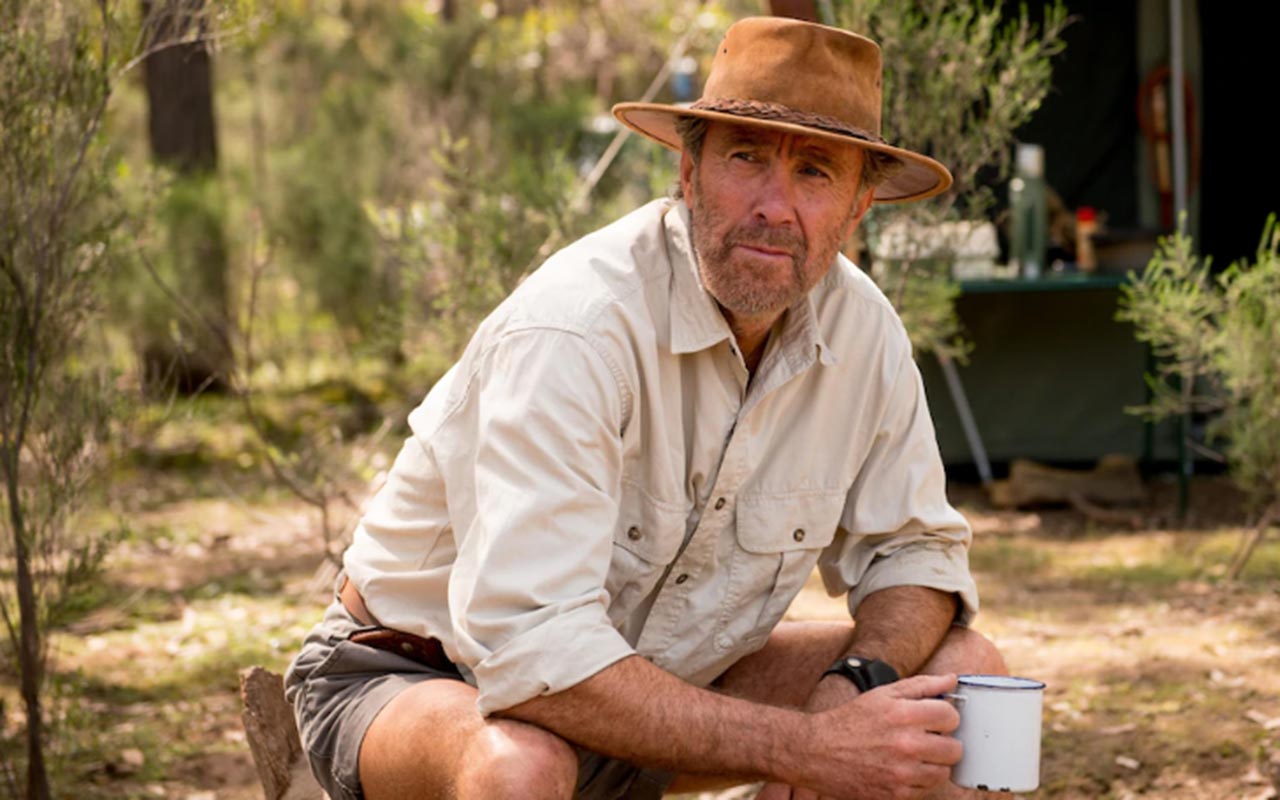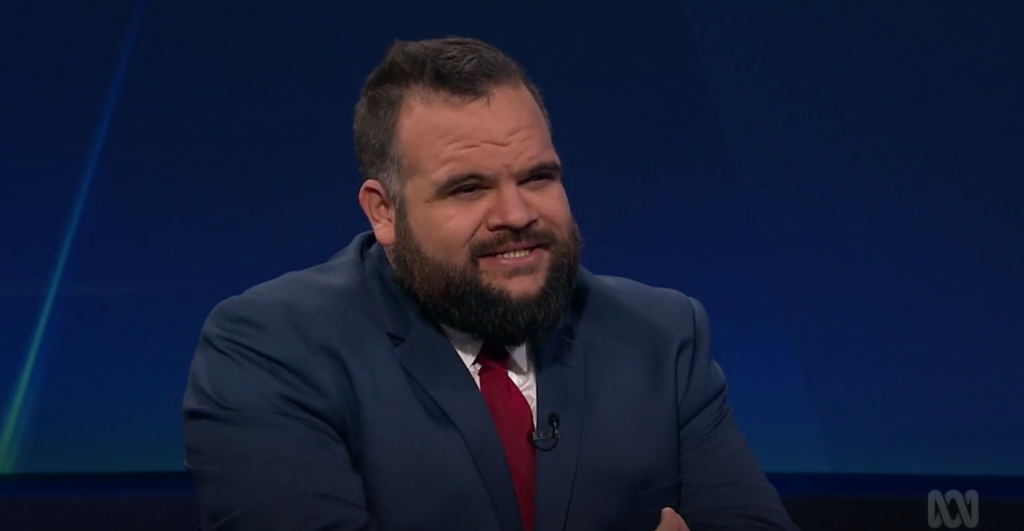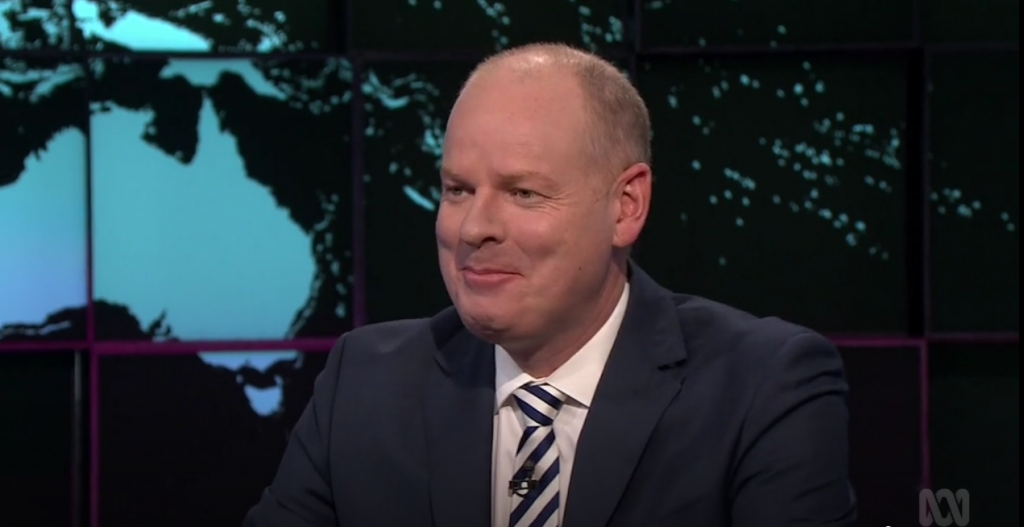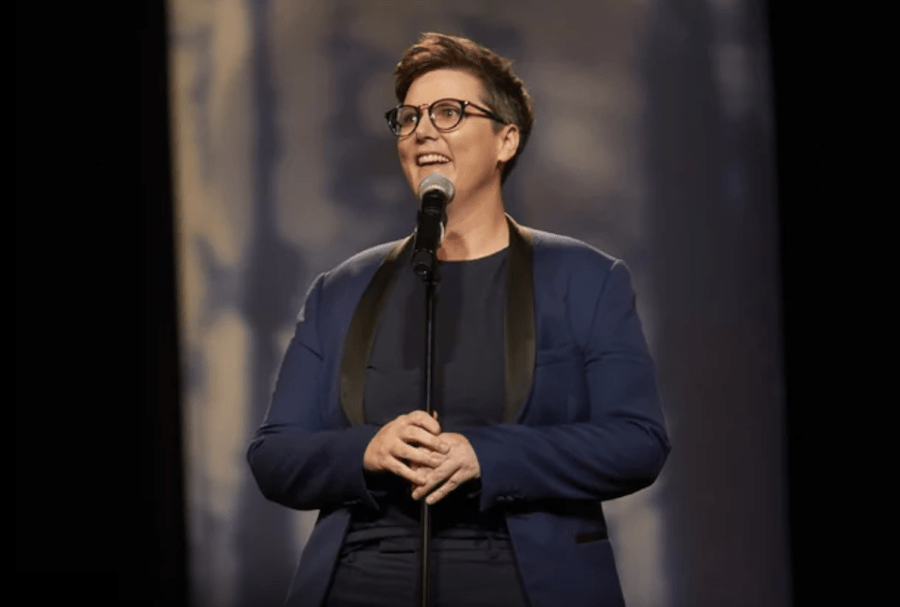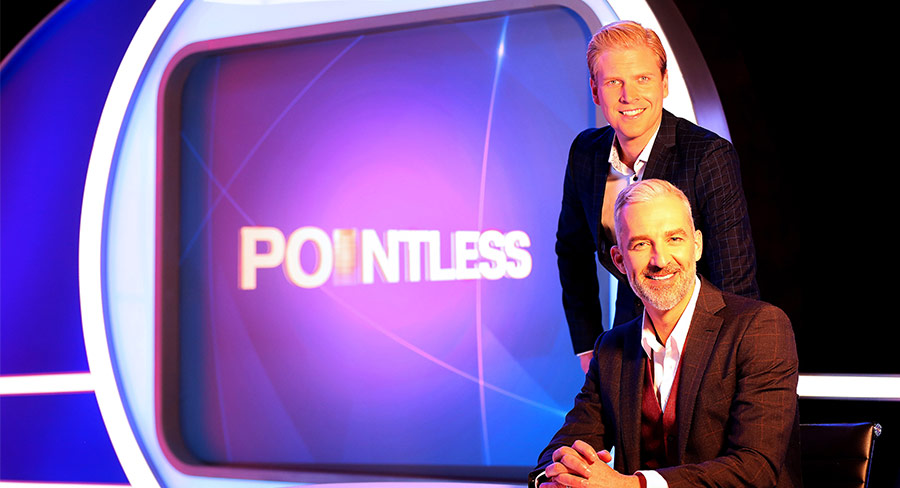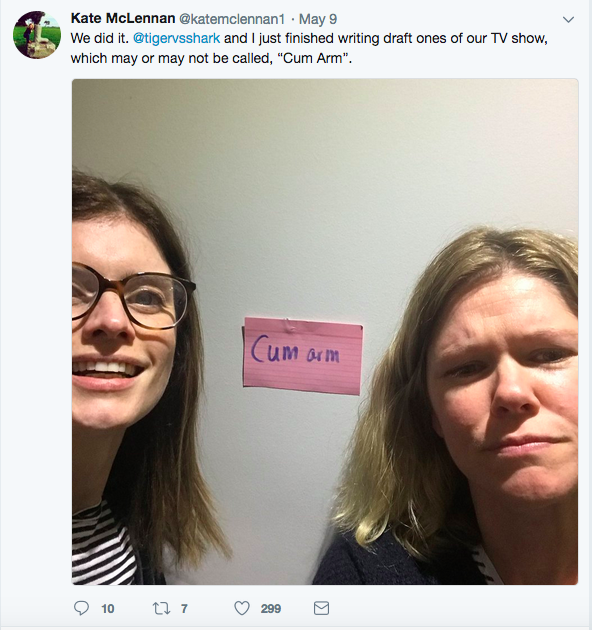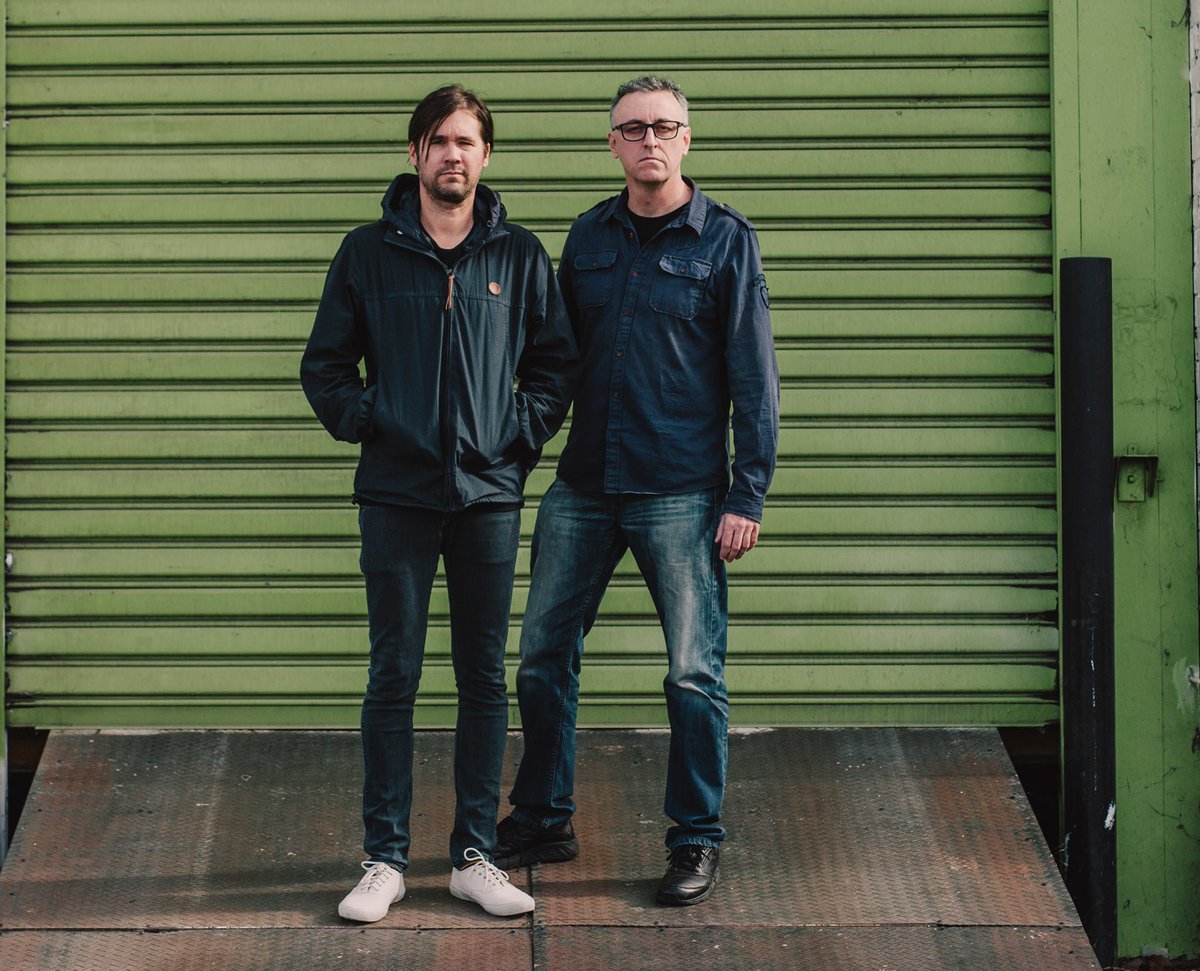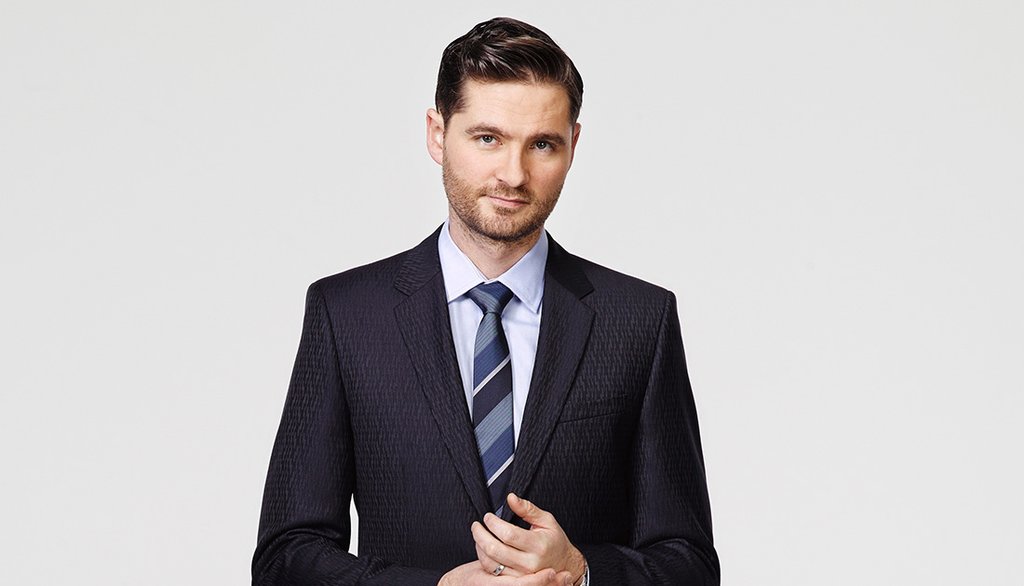Skit Happens
“Nothing is safe from a Skit Happens parody, when the nations up-and-coming comedians join forces for Network Ten’s first sketch comedy in 12 years. Starring Heath Franklin! Seriously”Dave
“Funny-man Dave O’Neil opens the doors to his crazy life in a half-hour narrative comedy. Expect laughter, tears and the appreciation of not being Dave.”Kinne Tonight
“Comedian Troy Kinne ditches the stress of modern life, bringing hard-working Australians a fast-paced half-hour of laughter.”Drunk History
“Rhys Darby and Stephen Curry pour themselves a drink in the international hit comedy format that takes Australia’s rich, and often surprising history and re-tells it through the words of our most loved comedians and entertainers.”Taboo
“Taboo has broken audience records in its country of origin, Belgium. The premise is as confronting as it is simple. The very funny Harley Breen spends five days and nights with members of a disadvantaged group in society and uses the experience to perform a stand-up routine about them – with the subjects sitting in the front row.”Trial By Kyle
“The toughest cases, biggest celebrities and genuine disputes can only be settled by one man, radio shock jock Kyle Sandilands. As Kyle carefully unravels each case, former The Bachelor Australia star and criminal lawyer Anna Heinrich is on hand to assist in forensically analysing the evidence.”Disgrace!
“The world is full of disgrace and outrage. Shunned politician Sam Dastyari and the team behind Gruen and The Chaser manage the latest outbreak of outrage in a half-hour of opinion, insight and laughs.”Bring Back… Saturday Night
“Rove McManus is on a mission to bring back Saturday night entertainment. A chance to reflect on what Saturday night means to Australia–then and now. Young performers will bring back the best of the past and performers of the past are challenged with reinvention. Sketches, guests, music and nothing but feel good moments as Rove finds the comedy and laughs by breaking down the conventions of entertainment and variety television. Join his quest to reunite Australia’s greatest acts, bands, and television faces in a generation bending live television show.”
Australian Tumbleweeds
All Aussie Adventures: Hittin’ the road again
The return of All Aussie Adventures last night comes at a time in TV history when broadcasters seem to be increasingly looking to the popular favourites of the past to draw in an audience (Roseanne, that proposed re-boot of Hypotheticals, that proposed re-boot of Frasier). Which is all well and good if it’s entertaining and funny, but maybe less so if you have no idea of the context of the show.
The first series of All Aussie Adventures, starring Glenn Robbins as Russell Coight, was broadcast so long ago that it pre-dates 9/11 (by two days). Even then, it was parodying a genre of television which had largely faded from our screens – The Leyland Brothers, Malcolm Douglas, Steve Irwin, and Les Hiddens in The Bush Tucker Man – in which one or more wizened blokes did it rough in the outback, drawing on the knowledge of the first Australians and their own wits to survive.
Anyone under 35 probably remembers Steve Irwin but most likely not Malcolm Douglas, Les Hiddens, or Mike and Mal Leyland. Not for them a childhood of watching in awe as Les discovers food and water in a seemingly barren landscape, or the Leylands find themselves stranded in the desert with little in the way of supplies and no way of getting help.
But this probably doesn’t matter when it comes to All Aussie Adventures. The main gag is that Coight, for all his soliloquies to camera about good bushcraft, actually has very little knowledge of outback survival at all – which makes watching him stuff it up all the more hilarious.
Most people love a good “hit in the nuts” gag, and there are at least three good ones in the first episode of All Aussie Adventures. There are also plenty of other gags of a similar nature, in which Coight falls, stumbles or generally makes life worse for himself and anyone who happens to be passing.
Working Dog, the makers of this show (and also of Have You Been Paying Attention?), are well-known for their high gag rate, and All Aussie Adventures doesn’t disappoint. Even if you think you know where the gag is going – and the set-up isn’t always subtle – it’s always either brilliantly performed by Robbins or goes somewhere slightly different to your expectations, so almost all of the gags land perfectly. Not something you can say of the show which followed it, Street Smart. But more on that some other time…
The Notorious B.R… iggs.
It’s been a while since we checked in on The Weekly, which probably makes us a regular cast member because hey look, Briggs is back! For only the second time this year. Remember when they announced he was going to be a regular cast member and then he promptly vanished from the line-up? Good times.
Good to see the warm, hilarious banter between Briggs and Charlie “I have a black friend, honest” Pickering is still there though: “The last time you were here you went for a ride with Bill Shorten on a bicycle built for… I want to say one-and-a-half”. No Charlie, what you want to say is the last time Briggs was here was back in episode one and we’re now up to episode 14: he’s appeared on the show less times than the Channel Nine logo in the corner of all that footage you’re constantly lifting from the commercial networks, and yet he’s still in the opening credits each week. Why?
Then again, maybe it’s just that nobody wants to sit near Pickering: Kitty Flanagan was nowhere to be seen this episode either – and it wasn’t like they didn’t have room, as Mel Buttle was on basically doing Kitty’s segment – while the only other regular cast member Tom Gleeson… well, of course he was there front and center:
That’s the face of a man just happy to be anywhere.
Otherwise… well, what else is there to say about a show that even the ABC’s own iView page doesn’t know whether to list under news, comedy, or a complete waste of time? It’s still 25% news clips from other shows, a forgettable interview segment, a forgettable interview segment hosted by Charlie Pickering, an OTT comedy rant delivered by Flanagan 80% of the time and a general sense of being made by people with one eye on the clock. It is what it is.
This idea of having Briggs do the “hard hitting” political interviews (this episode: Adam Bandt) is a bit strange though. It’s not like Pickering couldn’t do them and it’s not like Briggs is a great interviewer – or even a regular on the show – so why bring him in just for them? If they can only get him on as an occasional guest but they want to make his appearances seem special, why get him to do the one thing everyone else on the show is already doing every week?
Having Briggs do the political interviews on a show where the two main regulars are already doing interviews really just underlines how shithouse the two main regulars are. They’re both interviewers on what is just a soft news program, but you can’t get Gleeson to interview politicians because he’s a sarcastic shit, and you can’t get Pickering to interview politicians because… why again?
The only reason we can think of that makes sense from the show’s point of view – he’s the host; even just for promotional reasons you’d want him to be the one doing the high profile, big-deal chats – is that they don’t want Pickering sucking up to politicians so he can remain unbiased when it comes time for him to do his trademark hard-hitting political commentary and close-to-the-edge satire.
And if that’s the case, it’s funnier than anything The Weekly has put to air in a very long time.
True Dinks
Press release time!
True Story with Hamish & Andy, the breakout smash hit from 2017, returns for its eagerly awaited second series on Tuesday, August 7, at 8.40pm on Nine and 9Now.
This original format brings to life the best Australian tales you’ve never heard, told by the very people who experienced them and then humorously and cinematically realised through dramatic recreations.
In each half-hour episode, Hamish and Andy meet one regular Australian storyteller who recounts their amazing, surprising, funny and above all true story, which is simultaneously recreated by a cast of Australia’s most renowned performers.
The carefully scripted recreations produce a dramatic and heightened reality that brings a sense of the epic to these everyday stories of glory … or perhaps more often than not, complete humiliation.
The first series was a ratings smash hit, acclaimed by critics and viewers alike. Each episode attracted an average audience of almost two million viewers (including encore screenings and streaming on 9Now), making True Story with Hamish & Andy one of the most successful new program launches in recent years.
An all-star lineup of actors has been assembled for series two including Essie Davis, John Waters, Dan Wyllie, Bruce Spence, Rob Carlton, Rob Sitch, Mark Mitchell, Jane Allsop, Stephen Hall, Dave Lawson, Anne Edmonds, Katrina Milosevic, Georgia Love, Sam Pang, Susie Youssef, Debra Lawrance, Richard Davies, Brian Mannix, Shareena Clanton, Kate Jenkinson, Jessica Tovey, Ian Meadows, Denise Scott, Michala Banas, Toby Truslove, Santo Cilauro, Nicholas Bell, Dilruk Jayasinha, Kate McCartney, Luke McGregor, Mandy McElhinney, Dave Hughes, Christie Whelan-Browne and Genevieve Morris.
In Episode One we meet Carol. Despite Carol’s visual impairment, her mum has always told her that she can do anything. In 1986, when Carol was 15, she was given an English assignment that required her to write out and analyse 40 poems. But the night before the due date, she hadn’t even started. And with reading not her strong suit, Carol decided that her only way out was to fake an illness and miss the next day of school. What we learn in this amazing True Story is that once Carol is committed to something, there is no going back – even if what she has committed to is entirely fictitious. Will the highly trained medical fraternity catch Carol out, or will the wily teenager fool them all, just to get out of an English assignment?
True Story with Hamish & Andy, made with the assistance of Film Victoria, is created and produced by Tim Bartley, Hamish Blake, Andy Lee and Ryan Shelton, and written by Hamish Blake, Andy Lee and Ryan Shelton.
Guess we all knew this was coming, but it doesn’t hurt to having it down in writing. Especially as they don’t seem to be flogging it quite as hard second time around; sure, we’ve seen some ads, but compared to the return of Russell Coight’s All Aussie Adventures – which you’d have to be in the grave to no know is back this Sunday evening – it’s definitely flying in under the radar.
So here’s to our favourite not-quite Drunk History series: the cast may not be quite as high-powered as the first season, but presumably this time around they have a been idea of what works so the stories themselves will get the job done. And if no, they can always bring back the crime kid from season one: presumably his scams only got more advanced once he made it to high school.
What’s Next For Nanette?
So Nanette‘s a world-wide success, earning rave reviews and gushing think-pieces everywhere you look for weeks online – which is basically decades by old media timescales – while giving Hannah Gadsby the kind of life-altering fame most performers could only dream of. Did anyone really think she was still going to quit?
The thing is with quitting shows – or as they’re more commonly known, farewell tours – is that usually you can only do them once. You’re making a promise to your fans: you should come see this show, because it’s going to be special. And clearly Gadsby delivered on that promise – so much so that nobody with half a brain is surprised she’s now not giving up on comedy at all.
“I said I was quitting, and then if I quit, I’m an idiot, now,” Gadsby responded. “Like, if the show had gone as badly as I’d planned, it would have worked. But now I’m left with a choice: I’ll either be an idiot or a hypocrite. I’ll be a hypocrite.”
And fair enough too.
That said, Nanette was basically a win-win situation for a performer with nothing left to lose. If it sank without trace, so what? She had a decent back-up career going doing arts programming – including a show for the ABC and a Edinburgh live show she’s since cancelled:
Last year Gadsby won every major live comedy award. How do you follow that? You quit. Get serious. Write an art lecture about that massive blind spot in the male gaze. And make it hilarious. This year Gadsby wants to show you how to value what cannot be measured, how to look at art through closed eyes and why we must use our imagination to find all those women who’ve been buried deeper than history is prepared to dig. This year Gadsby’s not joking, and she is so much funnier for it.
And really, Gadsby had enough name recognition that Nanette was probably never going to “flop”. She’s a reasonably well known and well-considered comedian doing an attention-grabbing stand up show about how she’s quitting stand-up; it was a reasonable bet that it wouldn’t be in the bottom 70% of shows on the Australian festival circuit. She was rejecting comedy, comedy hadn’t rejected her.
The real problem is that Gadsby is now famous the English-speaking world over for the kind of act she can’t do again. She can do a personal show; she can do a show that’s not about being funny; she can do a show about sexism and art; she can probably do a show that combines them all. But she can’t do another Nanette, and Nanette is what’s made her famous.
Nanette works because it has a surprise twist. Nanette works because it’s a show by someone telling you what she really thinks on her way out the door. Nanette has an anger and an energy to it that comes from a performer with nothing to lose. It’s a one-time only deal, and that’s before we get into how it was largely the right show at the right time that tapped into a very particular point in the zeitgeist. Gadsby is a good comedian, but if the big social issue of 2020 is lethal heat waves or the return of Stalinism she’s probably not going to be doing Nanette II: It’s Getting Hot in Here.
So here’s the paradox: Hannah Gadsby is coming back to comedy on the back of a success she almost certainly can’t repeat. That’s not a slur on her abilities – Nanette is the kind of success nobody could do twice, because its success is life-changing. Even if you disagree that Nanette was a one-off, clearly she can’t do Nanette again because she’s no longer the person who came up with Nanette.
We’re not saying that her next stand-up show is going to be her talking about her new-found fame… but you know, that’s usually what happens in these situations and it’s all downhill from there. You can’t break though twice, and once you’ve broken through it’s hard to persuade regular people you’re just like they are. Of course she can be outspoken on issues; of course she can do a show looking back on her life before she became famous. But she’s still a famous success doing those things, and the changes everything.
(plus Nanette was in part raging against comedy itself for not letting her tell her story; that’s not really an approach she can try again after this kind of success)
The other option is to try and sustain this moment. She’s already got a book coming out, Ten Steps to Nanette – though exactly when seems to be up in the air, as it was due out a month ago and she’s obviously been a bit busy. You’d have to think the offers from major networks to do something – anything – would be flooding in, and Gadsby’s already done a bit of acting in Please Like Me; is the world ready for Nanette: The Sitcom?
On the personal side of things, she’s spoken out a number of times about how draining performing Nanette is for her; professionally, her decision to stick with comedy (or a form of comedy at least) means taking some time to figure out what’s next makes a lot of sense too. But reportedly Netflix deals are a one-time payment thing: while Gadsby is no doubt making extra cash from the extra live performances of Nanette, she’s not making any more money off her special now that it’s a massive hit.
If she wants to take full advantage of the wave she’s riding, she may have to ride it a little while longer yet.
Pointless without the laughs
The British game show Pointless has been a cult afternoon hit on the ABC for a few years now, delighting retirees and people taking sickies alike with its mix of obscure trivia questions and twee comedy banter. It’s the kind of show we don’t make much of here. We Australians make game shows (featuring ordinary people answering quiz questions for prize money) and panel shows (featuring comedians trying to make us laugh for an appearance fee), and, Have You Been Paying Attention? aside, never the Twain shall meet…until Ten bought the rights to make a local version of Pointless.
Mark Humphries wouldn’t have been our first choice to become this country’s Alexander Armstrong, or anything really, but at least it stops him making more terrible satire. Also, it’s nice to feel like you’ve got a shot at answering most of the questions; all those UK-centric rounds in British Pointless, of the likes of “Chancellors of the Exchequers of the 1990s”* or “Leicester City captains 1970-2015″**, are a bit hard-going if you’re from Adelaide. Whereas Aussie Actresses? That’s more our style. Although, annoyingly, we never found out whether last night’s contestants would have got a pointless answer if they’d gone with our answer of Naomi Watts in Funny Games…because they’ve cut all that out.
Yep, one of things quiz nuts really like about Pointless, the bit where Richard Osman, or Dr Andrew Rochford in this case, runs through what all the different possible answers would have scored, isn’t part of the show – there’s no time. This is a 45-minute quiz show in a 30-minute slot, so it’s bye bye that long list of answers, and bye bye lots of other things too, like one of the teams, and one of the rounds, and some of the questions.
But this is possibly a good thing. Pointless Downunder, as absolutely no one is calling it, is fast and question-focused. There’s no pfaffing around talking to contestant Dave about that hilarious thing that happened when he was working for the NHS, it’s: question, answer, question, answer, ad break, more questions and answers. It’s a format that better suits the timeslot of 6:00pm on a commercial network. And as TV Tonight pointed out the other day:
TEN is banking that most viewers won’t have seen [the British] version
Time will tell whether this will rate as well as Grant Denyer’s Family Feud in that timeslot, but there’s a strategy to get it seen by the viewers that seems to be paying off. Or it’s all going to go tits-up really soon. One of them.
What do we think? We like the fast pace but miss the comedy. Admittedly, after two episodes, Humphries and Rochford haven’t yet had time to build up that back catalogue of in-jokes about the Central African Republic that Armstrong and Osman have, and based on what we’ve seen of them so far, it’s Rochford who’s the funniest of the pair, but who knows? When the main problem the show faces is not getting axed or re-worked with Grant Denyer as host, they’re not concerned about making us laugh. Piss off and watch the British version on iView if you want that.
* Gordon Brown?
** No idea.
Drop the Pilot
Okay, so we were too busy being distracted by Greg Fleet’s latest twitter ruckus to see this coming:
CHANNEL 10 is turning to people power with a Pilot Week of eight new programs set to screen from August 19.
The revolutionary event, to be hosted by Grant Denyer and Angela Bishop, will give Aussie television viewers their biggest say ever in the shows they want to see on air.
And who could resist these winners?
Look at all that comedy! Cheap, shoddy, disposable comedy! Kind of strange there’s no drama pilots being aired in pilot week but hey, guess drama is something Ten still takes semi-seriously. And let’s be honest: at least half of these pilots are one-off ideas either thrown out there to get some buzz or just making up the numbers. “Dave O’Neill’s half hour comedy Dave“? How is that even a real show?
(sure, O’Neill has been a comedy trooper for decades now, but what’s he been publicly attached to that’s been even remotely a hit since he was the one who didn’t become a nationally famous millionaire out of Hughsy, Kate and Dave?)
And it’s a good thing this is almost certainly just a PR stunt rather than a serious attempt to try and widen their program base, because just look at that line-up: half the time if you’re not a worn-out retread then you’re someone flailing around the shallow end and if you’re neither there’s a good chance you’ve leap-frogged ahead of around a hundred vastly more qualified people to get your head on air. Who the hell wants to see Sam Dastyari anywhere ever again?
Also: where’s the women? It’s 2018 – if you’re airing eight pilots and they’re all fronted by men, you’ve made a conscious decision to exclude women. And it’s clearly not on that old chestnut of “we couldn’t find any good enough”, because going by what’s being served up a sock puppet would be over qualified for some of these jobs.
If any of these ideas were really that good, Ten would have given them the green light without making them jump through these attention-seeking hoops. Because that’s all this kind of “event” is – a stunt that has bugger-all to do with deciding which shows make it to air. Remember the ABC’s 2016 Comedy Showroom? The Herald Sun did:
The only other comparable event is ABC’s anthology series Comedy Showroom in 2016, trialling six pilots including The Letdown and Ronny Chieng: International Student.
Remember how success there was based on audience votes? Like fuck it was: Both The Letdown and Ronny Chieng: International Student made it to series because overseas networks stumped up cash to make them, not because of some local online poll. So forget about getting your “biggest say ever”: if the votes go the way of what the programmers want to air, it’ll be hailed as a win for people power, and if the audience somehow votes for that Heath Franklin show the ballots’ll get lost in a warehouse fire by November.
Sure, we’ll be watching them, because we’re idiots who like Australian comedy. The Drunk History knock-off might work, though it’s probably going to just be a Hamish & Andy’s True Story knock off (because that’s kinda just Drunk History without the booze). But the rest? Even if they’re great shows, there’s absolutely nothing about them – apart from maybe nostalgia – to make people tune in (since when have viewers wanted “nothing but feel good moments”?). Which is why they’re being aired as part of “Pilot Week”: without a gimmick they’d sink without trace.
Which doesn’t really suggest they’ve got a future once the gimmick’s over.
Back with the Krack
Press release time!
The Krack Heads Are Back As Kameras Roll On Get Krack!n Season 2
ABC, Screen Australia and Film Victoria today announced that filming has begun in Melbourne on Season 2 of comedy series Get Krack!n – created, written, produced by and starring Kate McCartney and Kate McLennan.
Follow-up to ‘The Kates’ now classic webseries The Katering Show, Get Krack!n Season 1– hailed by critics “the finest satire ever put to air on Australian television” [not The Australian Tumbleweeds] – was a breakout hit, continuing the ABC’s long tradition of fostering new talent and leading the way with world class comedy programming. Get Krack!n also enjoyed the youngest audience profile of any main channel show in 2017.
Now the morning show that made you want to go straight back to bed returns with another 8 x 25’ krackpot episodes. Like the cheap shape-wear adorning their bodies, The Kates bring their ill-fitting brand of hosting back to the chirpy, fresh, bright world of brekky TV.
Despite the loss of a sponsor, the incompetence of the crew, the femaleness of the hosts, and a pretty devastating structural fire, it seems Get Krack!n is back for more apocalypse-dodging content. And no-one is more surprised and fatigued by this fact than the show’s hosts, “trained” “actor” Kate McLennan and “personality-challenged” Kate McCartney.
Season 2 will again feature a kracking line up – returning kast includes Nakkiah Lui, Miranda Tapsell, Anne Edmonds, Michelle Lim Davidson, Adam Briggs, Charlotte Nicdao, Ming-Zhu Hii, Wes Snelling and Dave Thornton. Plus katch a smorgasbord of special guest appearances including: Matt Day, Elaine Crombie, Isaiah Firebrace, John Howard, Genevieve Morris, Michala Banas, Adam Hills, Denise Scott, Zoe Coombs Marr, Angella Dravid, Fiona O’Loughlin, Heidi Arena, Fiona Choi and Justine Clarke.
“We are so eggcited to be back. We can’t wait to be in the studio again, catering to the direct interests of our biggest fans, straight white men aged 18-55″, The Kates said.
ABC Head of Comedy Rick Kalowski said, “Get Krack!n Season 1 drew all four key TV demographics: fans of great satire; young people delighted to learn the ABC existed; angry old guys who just got Facebook; and people who only watch shows that offend them. Get Krack!n Season 2 will give all something to love/find ‘deeply problematic’.”
“The strength and appeal of this satirical series comes from the creative team’s commitment to not only including writers and performers from diverse backgrounds but ensuring that those people have ownership of their stories and experiences,” said Sally Caplan, Head of Production at Screen Australia. “Screen Australia previously supported the team’s online series The Katering Show, and it’s fantastic to see them grow their audience on TV with this new, timely and topical take on morning television.”
Film Victoria CEO Caroline Pitcher said “We welcome ABC’s next exciting installment from Melbourne’s creative all-rounders in Kate McLennan and Kate McCartney. Their unique approach to comedy writing delivers hilarious and unforgettable characters with content that speaks directly to a female audience. We look forward to seeing what the duo has in store for breakfast television this time around.”
Get Krack!n Season 2 will air on ABC TV and iview early in 2019.
Regular readers of this blog will know we’re filing this under good news: while Get Krack!n wasn’t flawless, it was easily one of the comedy highlights of last year and the sharpest scripted ABC comedy series since The Katering Show.
We’re also filing it under surprising news, as – unlike a seemingly endless procession of ABC comedy series that no-one’s excited about – there doesn’t seem to have been any kind of announcement that it was coming back before now. In fact, the Kates seem to have been slightly cautious as far as mentioning exactly what the “new show” they were working on was:
Maybe not the best example there.
So were there behind the scenes ructions? Contracts not signed? Funding issues? The ABC unable to announce a show that wasn’t returning until early 2019 when the ABC itself might not exist in 2019? We have literally zero idea. But we’re still excited that it’s coming back!
Sizzletown the shizzle
The first time we listened to Tony Martin’s talkback radio parody podcast Sizzletown we didn’t know what to make of it. Having followed Martin’s career for about 30 years, his comic voice was very familiar to us…but this was different.
Since Get This (which ended more than 10 years ago now), Tony Martin’s comedy’s been mainly focused on nerd issues, ageing pop culture references and pisstakes of awful media pundits and right-wing commentators. It’s almost like since Get This he’s just carried on doing Get This at every available opportunity – TV appearances, radio and podcast guest spots, books, Logies voiceover work… Which is fine if you like Get This but maybe not so good if you’re more into, say, character comedy, or improvised comedy, or you just want Tony to stop banging on about On The Buses.
And that’s possibly what Sizzletown’s all about. It’s Martin trying something different to much of the comedy he’s done up until this point. Instead of focusing on the craft of writing, of getting the right words in the right order to make the funniest joke possible, he’s decided to take a more improvisational approach to creating comedy, a sort of Barry Humphries as Sandy Stone approach, letting the relentless, rambling stream-of-consciousness – and his occasional corpses – provide the laughs.
It’s an approach that’s appropriate in Sizzletown as talkback callers are mostly rambling nutbags to start with, and all Martin (who plays them) has to do is accentuate that in his (presumably) hours of improvising in a sound-proof booth somewhere.
Noel from Ashburton (episode 3), for example, who likes watching “quaintly-presented murder” programs on TV and has been studying auto-erotic asphyxiation through University of the Third Age, is pure Sandy Stone: “You’ve got to keep up with modern times, don’t you?”
As a break from the callers, there’s interaction between Martin (who also hosts the show, as himself) and his producer Matt Dower (also of Get This) about how the callers know to call at all – it’s a podcast. There’s also the riddle of why Matt only seems to be able to provide three sound effects each week (at least two of them extremely inappropriate).
But for the fans Martin’s more usual type of sketches, Sizzletown often ends with an interview with a Hollywood star and director who somehow agreed to appear. The best of these have been two appearances from the director of The French Connection William Friedkin (Martin again).
What’s great about these – and the rest of the show – is the way in which the mixture of scripted and improvised material is brought together through smart, quick edits that transform what could be a rambling mess into a pacy piece of comedy.
Many podcasts run with the idea of being free to do anything for as long as they like. Sizzletown does that too, but it’s wise enough to reign it in and not outstay its welcome.
Hypothetical Hypotheticals
The Australian’s Diary column had this to say the other day:
Over at Aunty, it looks like a case of goodbye The Checkout, hello Charlie Pickering’s Hypotheticals. Diary hears the ABC is keen to revive the 1980s panel program fronted by Geoffrey Robertson QC to such fascinating effect. But in the hot seat for the project is comedian Charlie Pickering, host of The Weekly. Pickering is himself a former lawyer but several silk robes short of a Queen’s Counsel.
Last week the ABC axed The Checkout on the eve of a new series going into production. About 25 people who were expecting to have half a year’s work are now on the job scrapheap. How rude! But hold on. Diary interrupts to bring you a mid-item correction. The ABC didn’t actually axe The Checkout, the national broadcaster said in a release, it merely placed the program “on hiatus”. How’s this for a quote? “The ABC has decided not to commission a seventh series of The Checkout for 2018-19 at this time,” an ABC spokesman said in doublespeak that would do George Orwell proud. “The programming slate regularly changes for any number of reasons, including the need to strike a balance between new and returning programs for audiences. Putting The Checkout on hiatus does not preclude the program from returning in the future. The ABC is proud of its long association with The Checkout and production company Giant Dwarf, with which it has worked on other programs, such as The Letdown and Growing Up Gracefully.”
So, at the exact moment these black letters hit your retina and zap down the optic nerve into your brain’s comprehension lobes, The Checkout is not coming back. But it may.
The decision caught everyone by surprise. Ratings had been falling but the Checkout presenters, including Craig Reucassel, were all flown up last Sunday for the Logies at the Gold Coast, staying in the QT hotel. So the change of heart seems pretty sudden. Julian Morrow, executive producer and head of Giant Dwarf, was all smiles on the red carpet but blunter after production went down the tubes. “We have tried to be a show that does the core business of the public broadcaster. It’s true The Checkout’s combination of thorough research and creative ways to present consumer information means it is not as low-cost as some ABC programs.” The ABC says it is “definitely not correct” to say Hypotheticals will directly replace The Checkout. “The ABC will announce its upcoming slate of new and returning series in due course,” a spokesman said.
It must be difficult being what is essentially the gossip columnist at The Australian. You’re writing for a Murdoch-owned, right-wing paper – which means Rupe wants you to bash the ABC at every opportunity – but your readers are heavy ABC viewers and listeners, who probably both like The Checkout and remember Geoffrey Robertson’s Hypotheticals with great fondness – what to do? Invent some non-controversy about how one was axed, sorry, put on hiatus, to make way for a revival of the other? Yeah, that’ll do.
Not that TV long-running TV shows haven’t been rested to allow funds to be diverted to other new projects; a famous comedy example from the early 1980’s is how the BBC rested long-running favourite The Goodies to enable The Hitchhiker’s Guide To The Galaxy to be made. The result: Hitchhikers was huge and The Goodies defected to ITV. There’s an idea for The Checkout, up sticks to Channel 9!
Meanwhile, we can’t be the only ones curious about Charlie Pickering’s Hypotheticals. Will it match up to Geoffrey Robertson’s classic televised conundrums? Which famously forced politicians and activists with well-defined positions to abandon all their principles in the name of some fictional but always realistic scenario? Or will today’s political types be so principle-free they’ll have no principles to abandon?
It’s hard not want Hypotheticals to return with Robertson as the chair rather than Pickering. Robertson has a finer and funnier brain that Pickering, and with his international perspective and many more years of experience would probably make better programs. And it’s not like The Weekly has delivered a punch ever, so what makes anyone think the makers of The Weekly (and we’re assuming it’ll be made by that team) could do that with Hypotheticals?
Maybe it’s because Hypotheticals is the kind of solid format that only someone who really doesn’t know what they’re doing could mess up. It’s easy to stuff up topical satire – it’s a hard genre to get right, what with the having to write and deliver funny material thing – but TV debate? Relatively easy. Just put some nutbags with opposing views into a room and…FIGHT!
What will be key is getting the right nutbags in the room, and crafting a good scenario full of interesting twists and turns for them to debate – something Robertson and his team usually nailed. But can the team from The Weekly? There’s a bit of a difference between, say, setting up a debate about Manus Island and slagging-off Launceston.

